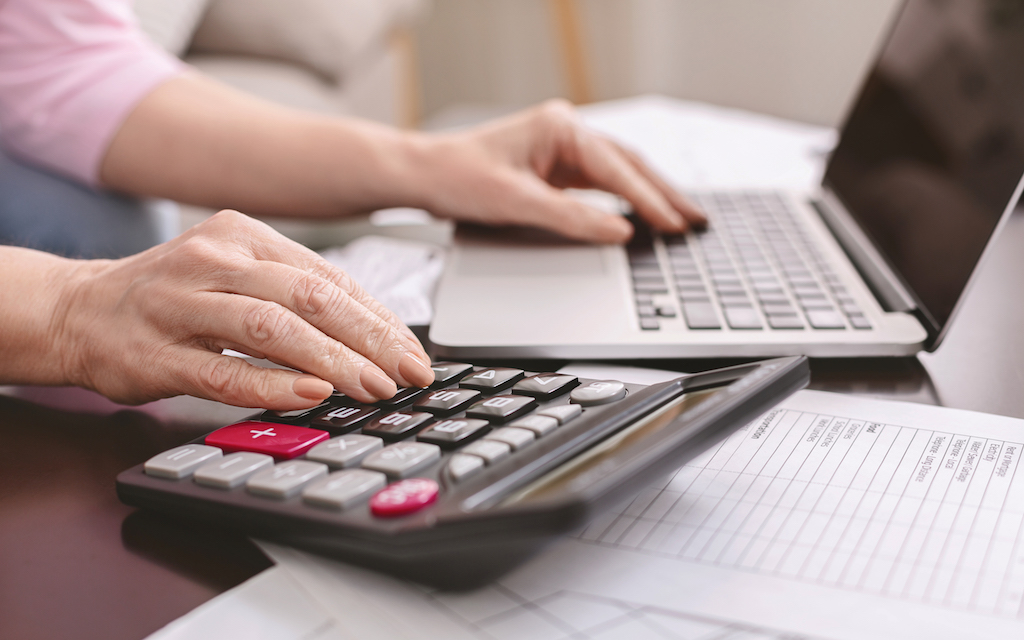If you’re new to the world of freelancing, then you may also be new to the world of tax returns.
When you work for a company, tax is relatively straightforward – it’s just a figure that shows up on your payslip, a sum that HMRC takes off your wages each month. This arrangement is known as Pay as You Earn – or PAYE.

What is Self-Assessment?
When you work for yourself – whether as a freelancer, a contractor, a tradesman or a business-owner – then you have to sort out your tax yourself. You have to complete a tax return to let HMRC know how much money you’ve made, so that they know how much to tax you. This arrangement is known as self-assessment.
Who Needs to Do a Self-Assessment Tax Return?
You must complete a self-assessment tax return if:
- You’re a self-employed sole trader, freelancer or contractor, and you earned more than £1,000 in the last tax year (6 April to 5 April).
- You own a business, whether you’re a partner in a partnership, or the director of a limited company.
Usually, you won’t have to send a tax return if your only income comes from your wages or pension.
Other Untaxed Income You’ll Need a Self-Assessment for
But you will have to send one if you receive any other untaxed income. This could include:
- Rent from property.
- Investment income.
- Income from overseas.
- Income from savings and dividends.
- Tips and commission.
- Certain COVID-19 grant or support payments.
Will HMRC Tell Me If I Need to Do a Tax Return?
After you register as self-employed, HMRC won’t necessarily tell you to fill in a tax return. This is because you only have to submit a return after you earn over £1,000 from your self-employed work. So it might be up to you to arrange to submit your first self-assessment return.
When you first register as self-employed, HMRC will send you a 10-digit Unique Taxpayer Reference (UTR) by post, as well as details on how to login to your online HMRC account.
Read our step-by-step guide to going self-employed for a full breakdown of when you should register, why you should register, and what happens after you register.
If you’re not sure if you need to completed a tax return, you can use this online tool to check if you need to send a self-assessment.
Are you doing some freelance work on the side of a full- or part-time job? Head here to read our guide to how second jobs might affect the tax you pay.
Why is HMRC Asking Me to do a Self-Assessment?
There are some scenarios in which HMRC will indeed tell you that you need to do a tax return. If you filled in a tax return last year, HMRC will assume that your circumstances haven’t changed. So they’ll remind you to fill in a tax return this year too.
HMRC sometimes sends self-assessment reminders to people on PAYE. This usually happens if you exceed a certain income threshold, or if you receive Child Benefit in addition to a large salary.
Indeed, if you have any undeclared income – whether it’s from commissions, investments, property, dividends, or something else entirely – it’s very likely that HMRC will find out. And when they do, they’ll likely send you a tax return to complete.
Tax Doesn’t Have To Be Taxing!
So if you do any self-employed work, or if you make any money beyond your salary, then you’ll almost certainly have to submit a self-assessment tax return.
The good news is that HMRC have tried to make self-employed tax returns as easy as possible to complete. So long as you keep good records, it’s really only a case of adding the right figures to an online form. HMRC will then automatically calculate how much you owe, and let you know how and when to pay.
You’ll also find lots of helpful guides on our website:
- How much do I need to earn before I pay tax?
- A guide to national insurance contributions for self-employed workers.
- What are allowable expenses for the self-employed?
Get Total Peace of Mind as a Freelancer
When you work for an employer, tax isn’t the only thing you can take for granted. You can also get by without worrying about risk.
But as a freelancer, you have to factor risk into everything you do: Injury or illness could put you out of action for days or weeks, during which time you might not be able to make any money. Your equipment could be lost, damaged or stolen, and you might struggle to afford repairs or replacements. And there’s always the risk that a client will be dissatisfied with your work. They might refuse to pay an invoice. Or worse, they might take legal action against you.
Risk is unavoidable. But it’s easy to manage. All you need is an insurance policy that covers you for the many things that could go wrong in your line of work.
As a freelancer, insurance provides an essential safety net, and peace of mind that you’ll be able to recover from whatever life throws at you. And it’s a lot more affordable than you might think! We specialise in flexible tailored cover for freelancers for as little as 50p a day.
If you have any questions, or you’d like to discuss your options, you can contact the Tapoly team at info@tapoly.com, call our info line on +44(0)207 846 0180, or use the chat box on our website.

